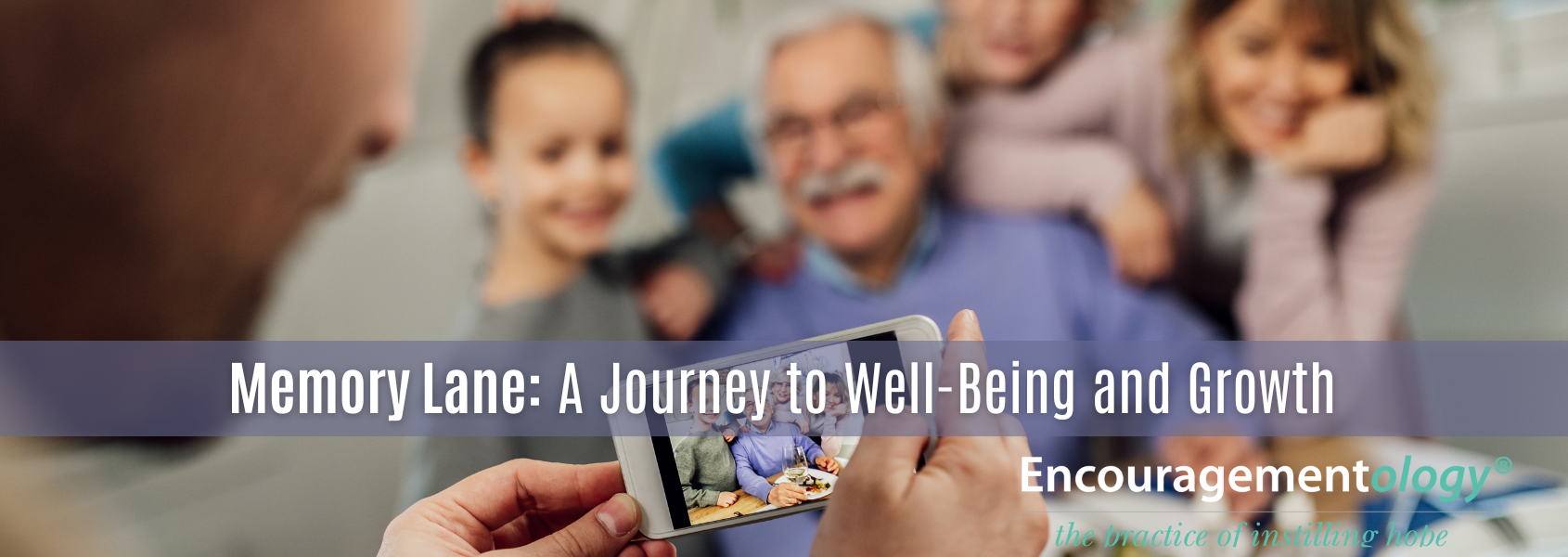SHOW NOTES:
On this show…we are taking a meaningful walk down Memory Lane as we journey to well-being and growth. Do you ever find yourself deep in thought, wondering why a certain memory pops into your head unannounced? It’s like your brain says, ‘Hey, remember that one time you spilled coffee on your boss’s desk? Classic!’ Memories are our personal time capsules filled with joy, heartache, and lessons we’d rather not repeat. But why are they so sticky? What makes them essential to our well-being, and how can we honor them without getting stuck in the past? Let’s dive into the treasure chest of our minds and figure out how these moments shape, heal, and even save us.
Welcome to Memory Lane, where the roads are paved with laughter and tears, the occasional pothole of embarrassment, and some scenic overlooks that make you go, “Wow, I’ve come a long way!” But before we start skipping down the lane hand-in-hand with nostalgia, let’s talk about what makes these little snapshots in our minds so special—and sometimes so puzzling.
What are memories, anyway?
Think of your brain as the ultimate personal assistant—it stores your to-do lists, your grocery store disasters, and that one karaoke performance you wish it would forget. Memories are essentially your brain’s way of saying, “Hey, this moment? Worth keeping.” They’re formed when our experiences are encoded in the brain, stored for safekeeping, and then retrieved when needed—or, you know, when you’re trying to sleep at 3 a.m. UGH every night!
The sciencey bit (but fun, I promise):
There are two main types of memory:
- Short-term memory: Like a post-it note for your brain. It’s where you store quick info like, “Where did I put my keys?” Spoiler alert: you’ll still lose them.
- Long-term memory: These are the biggies—your first dance, the smell of your grandma’s cookies, or that epic road trip. They stick around because they matter.
Why do they matter?
Memories are more than just the greatest hits of your life—they’re your compass, your roadmap, and your connection to the world. They shape how you see yourself, how you relate to others, and how you make sense of everything. Without them, you’d be like a GPS with no destination input—just aimlessly wandering through life!
A fun little detour:
Ever notice how a certain smell or song can hit you like a time machine? That’s called memory triggers, and they’re sneaky little things. One whiff of sunscreen, and suddenly you’re 10 years old at the beach, building sandcastles and eating questionable hot dogs. Or maybe it’s hearing that one song that reminds you of your high school crush—cue Sister Christian, awkward dances, and terrible fashion choices.
So, before we dive into how to honor and heal through these moments, let’s take a second to appreciate this magical filing system in our heads. Your memories are proof that you’ve lived, loved, and learned—whether that lesson was to never attempt bangs again or to cherish the people who make life worth remembering.
Dr. Kate Truitt gives us some good insight into Healing Through the Art of Storytelling
On Ted-Ed’s YouTube Channel, I found How Memories Form and How We Lose Them by Catharine Young
CHALLENGE: Take time this week to revisit one memory that brings you joy and reflect on how it has shaped you. Then, create a new moment to treasure—because the story of your life deserves another great chapter.
I Know YOU Can Do It!

